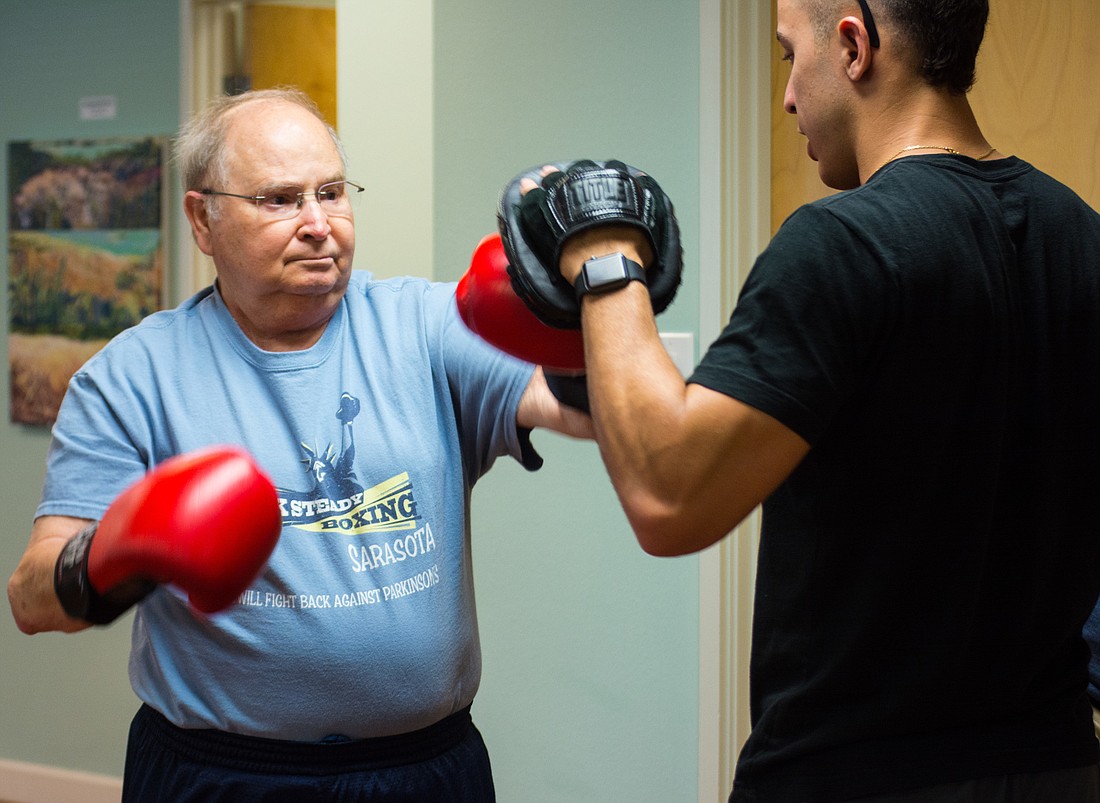- May 7, 2025
-
-
Loading

Loading

Once a week, Ronald Christofaro dons bright red boxing gloves and pummels a punching bag half his size. Apart from throwing hooks and jabs, he also dances, sings and practices yoga.
He has Parkinson’s disease and the various movement activities he takes part in at Parkinson Place help alleviate his symptoms.
“Probably the best thing that ever happened to me is knowing about Parkinson Place,” Christofaro said. “Without them, I don’t know where I would be.”
Parkinson Place, under the direction of the Parkinson Research Foundation, is a care center in Sarasota that offers free classes and programs dedicated to the physical, mental, emotional and social needs of those living with Parkinson’s disease and their caretakers.
“Probably the best thing that ever happened to me is knowing about Parkinson Place.
Without them, I don't know where I would be.” — Ronald Christofaro
He was diagnosed with Parkinson’s three years ago at the age of 53. Parkinson’s disease is a progressive disorder of the nervous system that affects movement and motor control.
The symptoms generally develop slowly over time and can include tremor, limb rigidity, slow movement and balance problems, but the symptoms differ from person to person.
While Parkinson’s is not fatal, the Centers for Disease Control and Prevention rated complications from the disease as the 14th leading cause of death in the U.S.
Christofaro said his main problem is walking, so he uses a walker to help him get around.
“The thing with the disease is that it slows you down,” he explained. “The tough thing is getting up in the morning and getting dressed. You can do it, but everything you do in life is a lot slower. It’s like you’re moving in slow motion. What would take you half an hour to do takes an hour and a half.”
Apart from mobility problems, Christofaro was struggling with speaking too quietly. He also has difficulty sleeping. But the classes and programs at Parkinson’s Place, which he attends four to five times a week, have helped him with deal with those issues.
“You can’t just sit around when you have this disease,” he said. “I’m not generally a person who loves exercise. Without these programs, I’d probably be sitting around watching TV and not doing anything else. Sometimes you don’t make it to a class, but you feel kind of lost if you don’t make it.”
The Parkinson’s Outcomes Project, an ongoing clinical study of Parkinson’s disease started in 2009 by the Parkinson’s Foundation, examines the physical and potential neuroprotective effects of exercise for those with Parkinson’s and found that exercise can positively affect strength, balance, coordination, flexibility and endurance for those in all stages of the disease.
Beyond the physical benefits that Christofaro experiences through classes at Parkinson Place, he says he feels better off mentally as well.
“I feel my mind is pretty good,” he said. “I don’t feel that the disease has destroyed my life, but if I wasn’t coming here, I’d probably wouldn’t have the enthusiasm that I do.”